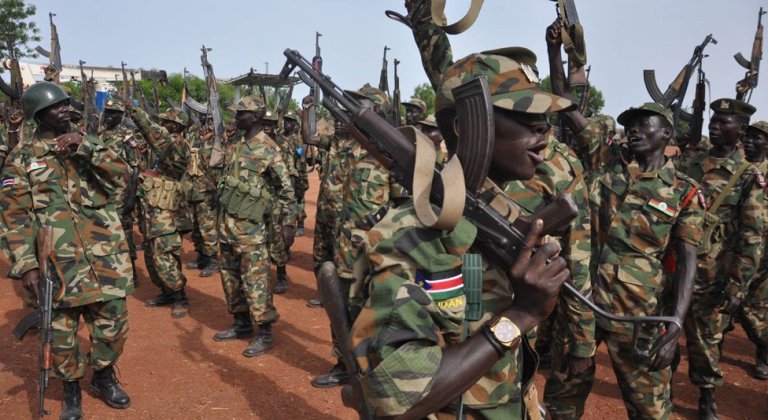Rebels around Juba rejoin South Sudanese army

August 22, 2018 (JUBA) – A group of rebels purportedly from the South Sudan United Front/Army (SSUF/A) of the former army chief of staff General Paul Malong rejoined the SPLA on Wednesday, according to the SPLA and defectors commanders.
The group led by Chan Garang Lual carried out several attacks on the army positions in Juba and outside the capital between June 2017 and last January 2018. The attacks initially were attributed to the SPLM-IO which swiftly denied the responsibility. After what it was announced that the rebels are part of Malong’s SSUF/A but the latter too denies the claim.
However, it has been admitted that the group caused a headache to the security apparatus with its capacity to pose direct threats to the capital and its suburbs.
The peace deal with the defectors was negotiated by the South Sudan National Security Service which was in secret negotiations with the rebels.
Speaking at a press conference held in Juba to announce the peace agreement, SPLA spokesperson Brigadier General Lul Ruai Koang admitted that the defectors “gave us hard time,”. “With (their) return, I strongly believe insecurity around Juba is going to be a thing of the past,” he added.
For his part, Lual who is from Aweil area said they rejoined the national army in line with the presidential pardon.
“The President of the Republic announced an amnesty offer. We heard it and we accepted. That is why we have decided to return. This is our home. So I have come and I believe many will follow me,” he said.
Ajang Lino another former rebel commander who described himself as the commander-in-chief of the faction’s army said they joined the government because they had a disagreement with the former SPLA chief of staff without further details.
The defectors claim their group is composed of 300 fighters.
The terms of the deal were not disclosed but generally, in such situation, the rebels are reintegrated and their leaders also promoted and receive some financial compensations.
Gen. Malong said he wants to participate in the IGAD sponsored revitalization process but the mediation declined his demand. The rejection of his participation prevents him and his group from taking part in the implementation process and the power-sharing.
(ST)
